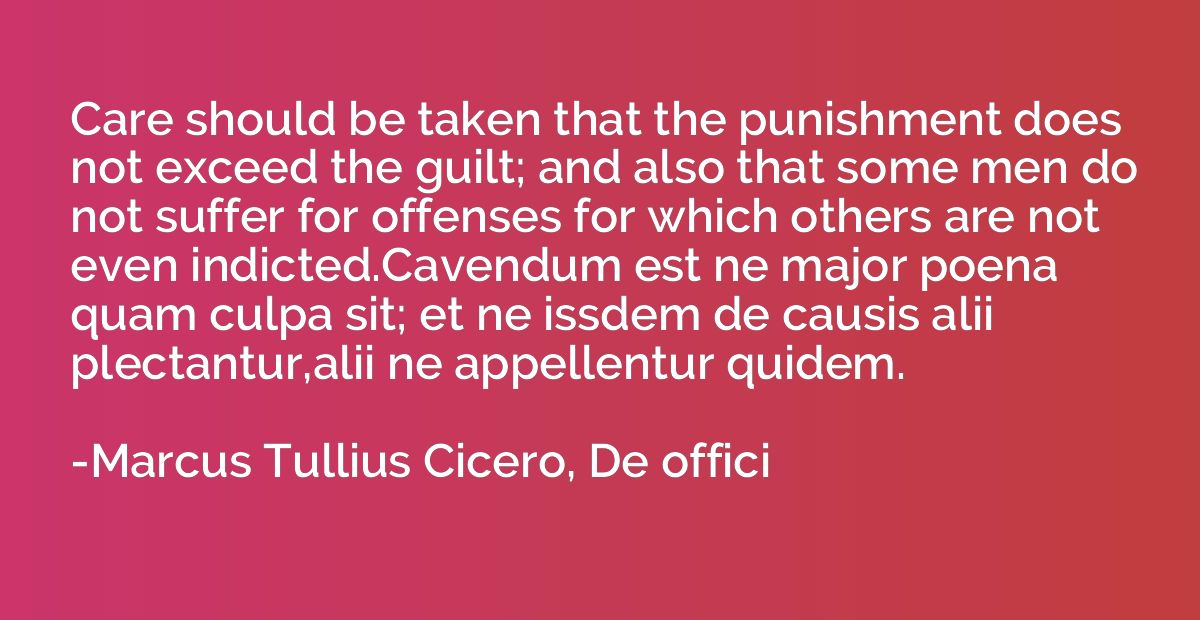Quote by Marcus Tullius Cicero, De offici
Care should be taken that the punishment does not exceed the guilt; and also that some men do not suffer for offenses for which others are not even indicted.Cavendum est ne major poena quam culpa sit; et ne issdem de causis alii plectantur,alii ne appellentur quidem.

Summary
This quote emphasizes the importance of ensuring that punishment is proportionate to the crime committed. It warns against meting out excessive punishment that exceeds the guilt of the individual. Furthermore, it cautions against a situation where some individuals face punishment for their offenses while others do not receive any repercussions for similar actions. The quote advocates for fairness and equality in the administration of punishment, highlighting the need for consistency and justice in the legal system.














